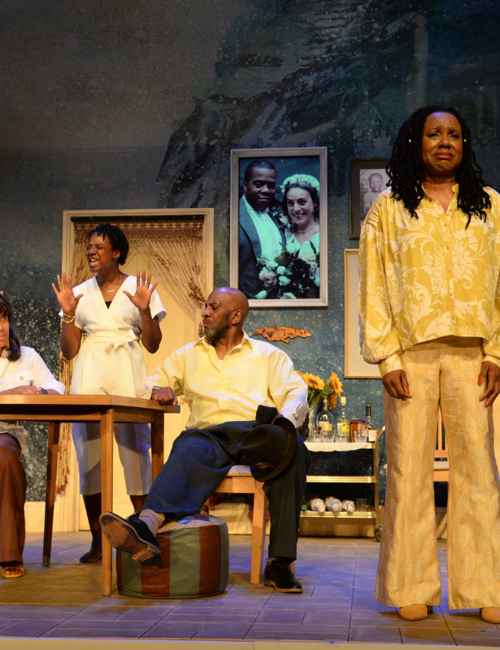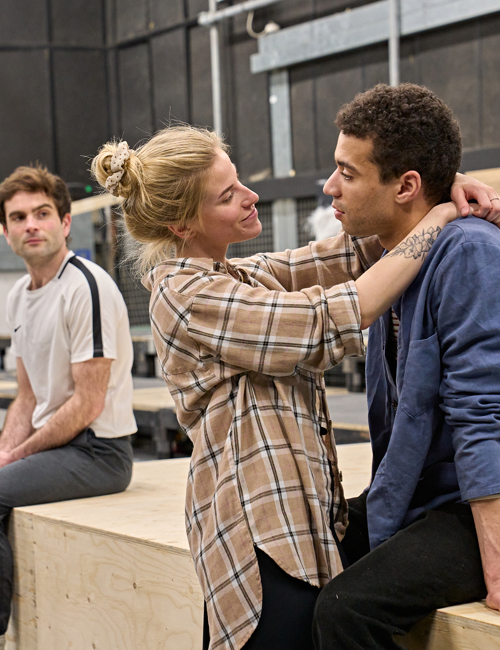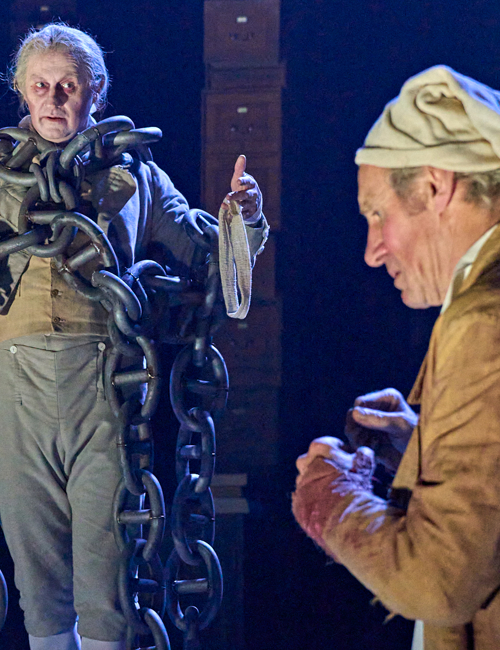Hitchcock meets Lord of the Flies in this new comedy-thriller at the Nottingham Playhouse...

“It is easier to imagine the end of the world than the end of capitalism.” So says Mark Fisher in his 2009 book, Capitalist Realism. If Josie White’s new play, ROTTEN, is anything to go by, then our hurtling towards this end is perhaps experienced less as a tragedy than a thriller—one that proceeds with all the pace and fury of Alfred Hitchcock’s famous bomb-under-the-table formula for suspense: we know what’s coming, and yet we are powerless to stop it.
The play stars Narisha Lawson, Nicola Taggart, and Kavita Vyas as Coco, Saoirse, and Sonia: three down-and-out actresses who, alongside Sonia’s drug-dealing boyfriend, Ross (Sam Butters), concoct a plan to blackmail the wealthy heiress and influencer, Iris (Alice Berry).
Our anti-heroines’ (and the emphasis really does fall on the word anti- here) are not only motivated by the poverty of their present circumstances, but also by their respective childhood traumas: Coco is a queer woman whose early experience of homophobic abuse has left her with a lifelong aversion to intimacy; Saoirse, a headstrong Irish Catholic whose upbringing in Belfast during the Troubles instilled in her a feeling of powerlessness and indignity; Sonia, a formerly-wealthy, daddy’s-girl whose naivety conceals the fact that she lost her father to suicide at a young age.
the characters are more than willing to inflict the same suffering on others
Any sympathy elicited by these trauma narratives is undermined, however, by a cruel irony: despite the reality of their lived experiences, the characters are more than willing to inflict the same suffering on others—whether it be Iris, or, indeed, each other—in their pursuit of “the good life.” It is this constant troubling of the relationship between victim and perpetrator that ultimately capitulates the characters into what can only be described as complete moral free-fall.
Two moments in particular illustrate the play’s deft use of irony. The first moment comes right at the beginning, when Saoirse offers an impassioned speech criticising the deadening effects of our culture’s obsession with celebrity. Yet this passion, so powerfully felt, is revealed to be a ruse: her lines are not, in fact, a real outpouring of anger, but a scripted audition tape, delivered in an accent that is not her own. (She later directs this speech verbatim at Iris, only to undermine the words’ power by rounding them off with a celebratory: “Nailed it!”).
The second moment comes when Ross delivers a frenzied sermon attacking the ruling class. However, for all his sincerity and conviction, he fails to note a glaring hypocrisy, as he continues to consume copious amounts of cocaine—a notoriously middle class drug which bears its share of the blame for fuelling social crises across working class communities in the UK, and elsewhere.

It is not that these characters are oblivious to the political and social realities of the world in which they live. If anything, they are all too aware. Trapped in game whose rules they hate, but whose promise of a cash-prize at the end proves all too tempting, they continue to roll the dice, becoming increasingly obsessed with the prospect of their winner-takes-all gambit. In doing so, however, they fail to see that the match has already been fixed: nobody wins, everyone loses.
Director Rikki Beadle-Blair compares his experience of directing the play to conducting a “concerto”: “the cast,” he says, “have to be pitch perfect virtuosos to keep the tension” whilst also playing for laughs. It is this sensitivity to the rhythm and tempo of White’s fabulous script, along with the wonderfully compelling and idiosyncratic performances of the cast, that makes ROTTEN terrifying to watch, but impossible to ignore.
ROTTEN played at the Nottingham Playhouse on Thursday, May 23rd 2024.
We have a favour to ask
LeftLion is Nottingham’s meeting point for information about what’s going on in our city, from the established organisations to the grassroots. We want to keep what we do free to all to access, but increasingly we are relying on revenue from our readers to continue. Can you spare a few quid each month to support us?




